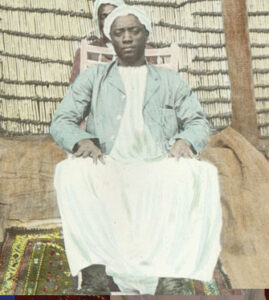It’s now 137 years since the martyrdom of over 40 believers took place in Uganda. The majority of the martyrs were executed at Namugongo and all these were killed on the orders of the then Kabaka of Buganda Kingdom Basamula Ekkere Danieri Mwanga II.
Among the reasons why Kabaka Mwanga II killed these people who later became martyrs is that he was concerned with the growing influence of Christianity and the rise of a new class of officials, distinct from the traditional territorial chiefs, who were educated, had a religious orientation, and wished to reform Ganda society. Some books say that because of Christianity, many members of the royal court started refusing to yield to Mwanga’s religious demands, which he saw as an insubordination.
But who was Kabaka Mwanga?
He was the 31st Kabaka of Buganda who was born at Nakawa in 1868. His father was Kabaka Muteesa I Mukaabya Walugembe Kayiira who reigned between 1856 and 1884.
Kabaka Mwanga II’s mother was Abakyala Abisagi Bagalayaze and was the 10th of his father’s 85 wives. Kabaka Mwanga II ascended to the throne on 18 October 1884, after the death of his father Kabaka Muteesa I.
After the death of his father, Kabaka Mwanga II ascended to the throne at the age of 16 and established his capital on Mengo Hill. He increasingly regarded the greatest threat to his rule as coming from the Christian missionaries who had gradually penetrated Buganda.
Since he was young, Kabaka Mwanga II, failed to lead as his father used because his father Kabaka Muteesa I had played off the three religious traditions – Catholics, Protestants, and Muslims – against each other and thus had balanced the influence of the powers that were backing each group in order to extend their reach into Africa.
However, when Kabaka Mwanga II became a king, he used a much more aggressive approach, expelling missionaries and insisting that Christian converts abandon their faith or face death. A year after becoming king at the age of 17 years he executed Yusufu Rugarama, Makko Kakumba, and Nuuwa Sserwanga, who had converted to Christianity on 31 January 1885. On 29 October 1885, he had the incoming 37-year-old Anglican archbishop James Hannington assassinated on the eastern border (Busoga) of his kingdom.
Mwanga II was a determined king who demanded much honour and respect because many of his subjects had started undermining his orders, he, therefore, precipitated a showdown in May 1886 by ordering converts in his court to choose between their new faith and complete obedience to his orders and kingdom.
It is believed that at least 30 Catholic and Protestant neophytes went to their deaths. Twenty-two of the men, who had converted to Catholicism, were burned alive at Namugongo on 3rd June 1886 and later became known as the Uganda Martyrs.
These murders and Mwanga’s continued resistance alarmed the British, who backed a rebellion by Christian and Muslim groups who supported Mwanga’s half-brother and defeated Mwanga at Mengo in 1888.
Mwanga’s brother, Kiweewa Nnyonyintono, was elevated to the throne. He lasted one month and was replaced on the throne by another brother, Kabaka Kalema Muguluma. However, Mwanga escaped and negotiated with the British. In exchange for handing over some of his sovereignty to the British East Africa Company, the British changed their backing to Mwanga, who swiftly removed Kalema from the throne in 1889. He later converted to Christianity and was baptized as a Protestant.
On 26 December 1890, he signed a treaty with Lord Lugard, granting certain powers over revenue, trade and the administration of justice to the Imperial British East Africa Company. On 27 August 1894, Mwanga accepted for Buganda to become a Protectorate. However, on 6 July 1897, he declared war on the British and launched an attack but was defeated on 20 July 1897, in Buddu (in today’s Masaka District). He fled into German East Africa (modern-day Tanzania), where he was arrested and interned at Bukoba.
Kabaka Mwanga was deposed in absentia on 9 August 1897. Tenacious as he was, he escaped and returned to Buganda with a rebel army, but was again defeated on 15 January 1898. He was captured in April 1899 and exiled to the Seychelles. While in exile, he was received into the Anglican Church and baptised with Danieri (Daniel). He spent the rest of his life in exile. He died in the Seychelles on 8 May 1903, aged 34 or 35. On 2 August 1910, his remains were repatriated and buried at Kasubi. Kabaka Mwanga II had 17 wives with many children.
Some of his quotes are; “I am Mutesa’s son, and what Mutesa was in Buganda that I will also be, and against those who will not have it so I shall make war”. “Princes are like pythons they swallow each other” “When I die it will be the end of the kingdom of Buganda. Europeans will take over (eat) this country of mine.”
Do you have a story in your community or an opinion to share with us: Email us at editorial@watchdoguganda.com













